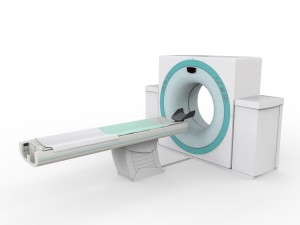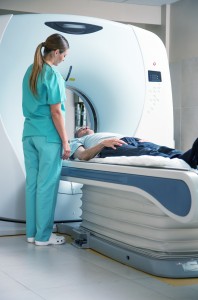MRI
An MRI (Magnetic Resonance Imaging) is a procedure that will provide internal images of joints, soft tissue, structure, organs and much more. An MRI uses radio frequency waves and a magnet to create the images.
Because of the different sequences, you will hear various noises throughout the exam. ADI has the quietest scanners available and our experienced technologists pamper their patients with options such as music, warm blankets and cushions to make the experience as stress free as possible. At ADI, patients are in direct communication with the technologist through an intercom and a call alert button in case the patient needs assistance during the exam.
Let your doctor know if you are claustrophobic. Your physician can order sedation prior to your appointment at ADI.
An MRI can take up to one hour or longer. Sometimes an intravenous contrast is given to determine normal from abnormal tissue.
ADI’s MRI scanners provide the highest quality images available.
Because an MRI uses a powerful magnet to create images, it is very important to let the facility know ahead of time if you have any implanted metal, electronic devices, or anything foreign inside your body. All jewelry must be removed before arriving at our facility. If you do any grinding or welding and have had metal in your eyes, an x-ray of your eyes may be required to verify there is no foreign body in them. Please inform us prior to your appointment as to not delay the exam. Even if you have had an MRI at another facility before, documentation in writing is required defining any implants. Some of these implanted items may require further information prior to an MRI, or even possibly prevent you from having an MRI performed.
The following are an example list of things you need to notify us prior to having an MRI:
- artificial heart valves
- implanted heart defibrillator
- implanted nerve stimulators
- pacemaker
- cochlear implants
- bullet, shrapnel, or any other type of metal fragments.
For more information, contact ADI today.
CT Scan (CAT Scan)
 A CT scan is a low dose, faster kind of X-Ray imaging in which a thin x-ray beam rotates around the patient allowing doctors to see highly detailed images. ADI’s computer combines the images to form highly detailed three-dimensional pictures of the body. This type of imaging significantly helps the physician in determining a diagnosis.
A CT scan is a low dose, faster kind of X-Ray imaging in which a thin x-ray beam rotates around the patient allowing doctors to see highly detailed images. ADI’s computer combines the images to form highly detailed three-dimensional pictures of the body. This type of imaging significantly helps the physician in determining a diagnosis.
The most common CT scans ordered will be of head, chest, abdomen, or pelvis. Sometimes multiple CT scans are done at the same time, (i.e. the chest and abdomen). Most times, an intravenous dye is given to help the doctors determine normal from abnormal findings. You will feel warm while the contrast is injected, but it only lasts for a minute.
If your doctor wants to scan your abdomen, you will have to drink a glass of oral contrast 1 hour prior and another glass 30 minutes prior to the scan. For CT scans with contrast, it is recommended that you do not eat or drink 4 to 6 hours before the scan (except for the contrast for the scan). A CT scan usually only takes 10 to 15 minutes once you are prepped for it.
About The Test
How The Test Is Performed
You will be asked to lie on a table that slides into the center of the scanner.
How The Test Will Feel
The process is fairly painless. If contrast dye is to be administered, an IV will need to be placed in a small vein of a hand or arm or foot.
Why The Test Is Performed
CT provides rapid, detailed images of the patient that can then be reconstructed into three-dimensional images. Intravenous contrast improves evaluation of vessels and improves detection of tumors.
What The Risks Are
CT scans and other x-rays are monitored and regulated to provide the minimum amount of radiation exposure needed to produce the image. The risk associated with any individual scan is small. If IV contrast is injected, a risk of an allergic reaction in minimal. Statistics will be explained at time of testing.

